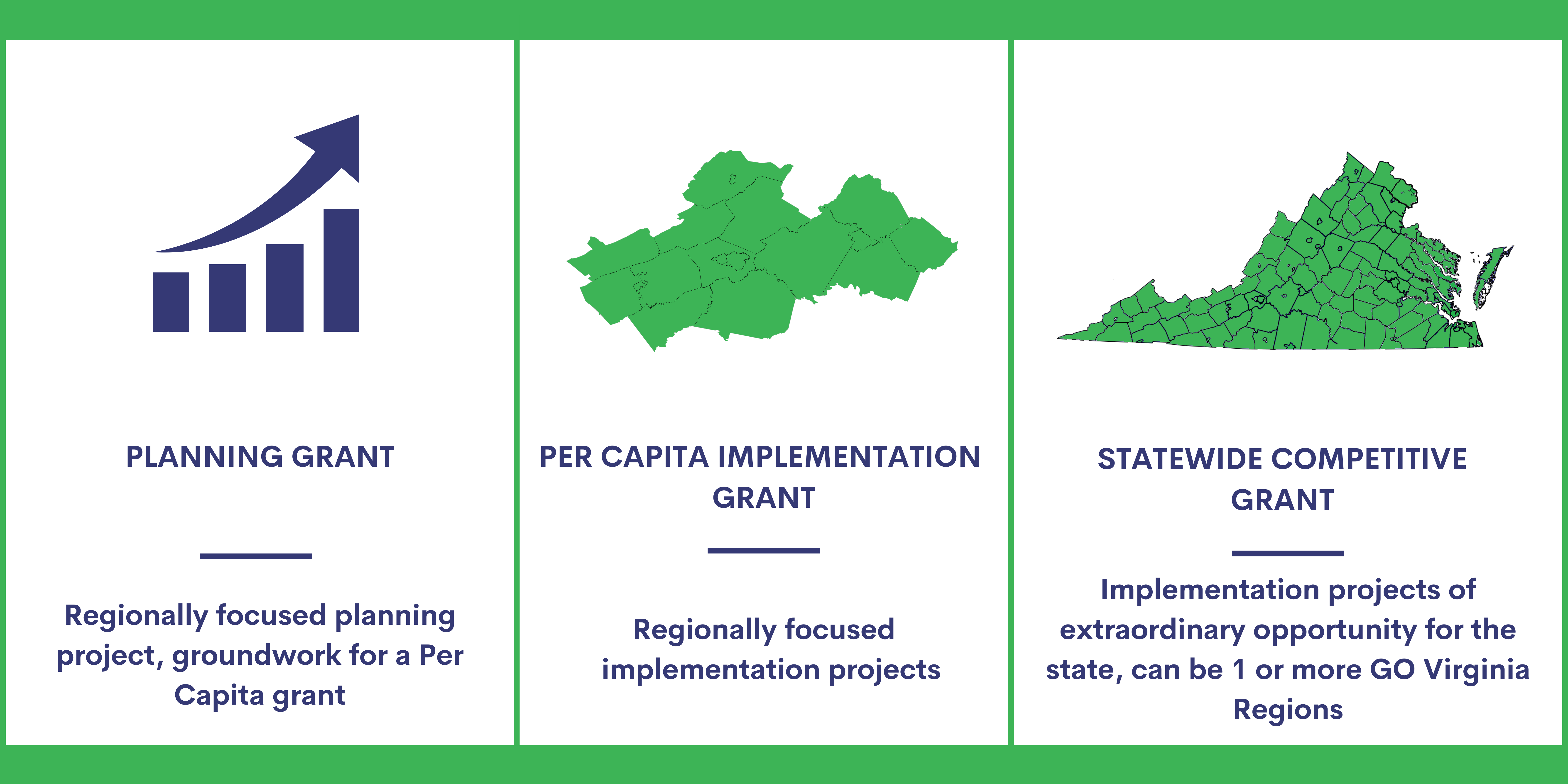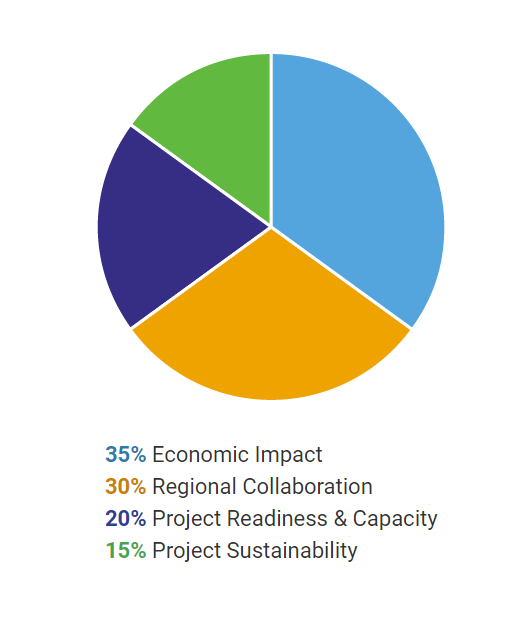Apply to Region 2 Grant Programs
GO Virginia Board Policy #10: Helene Business Recovery Initiative
The GO Virginia State Board has authorized funding for localities impacted by Tropical Storm Helene with relaxed program requirements. The GO Virginia Region 2 Council is seeking expressions of interest from impacted localities for business technical assistance, with special consideration given to projects supporting the outdoor recreation industry as well as industries which are highly dependent on visitor spending.
This funding must be obligated by June 30, 2026. Please contact Jemma Sabokrouh if interested.
GO Virginia Region 2 is accepting applications for funding projects that could boost the region’s economy. Region 2 anticipates funding projects in varying amounts with project periods not exceeding 2 years. Applications are reviewed once a quarter (4 times a year).
Eligible Applicants:
Potential applicants interested in applying to receive GO Virginia funds for a project must reach out to the Region 2 Council support staff.
Local government entities or organizations working on behalf of local government entities may apply to receive a GO Virginia grant. These organizations may include:
- regional government entities,
- nonprofit organizations,
- regional economic development organizations,
- regional chambers of commerce,
- planning district commissions, and
- colleges and universities.
Individual private businesses may not apply to receive funding nor can any grant serve to benefit a single private business.
For more information, please see the GO Virginia Program Manual.
To Submit a Region 2 Application:
- Review information on this page about the Region 2 grants to better understand what you need to know before applying.
- Submit your expression of interest using this form.
- Select the appropriate type of grant for your project and complete the application.
- Discuss with Region 2 staff early – we’re available throughout the year.
For feedback and assistance on project development, email Jemma Sabokrouh at the Virginia Tech Center for Economic and Community Engagement.
Grant Program Overview
GO (Growth & Opportunity) Virginia is a statewide economic development initiative designed to drive the growth of higher paying jobs and diversify regional economies by incentivizing collaboration between business, higher education and local government through nine regional councils. Each of the nine councils establishes priorities for grant funding opportunities in a regionally developed Growth & Diversification Plan. These plans are updated every two years.
Projects must meet statewide program goals as well as the goals of GO Virginia Region 2:
Statewide Goals
- Drive growth of higher paying jobs
- Generate a return on investment within 3 years (5 years for Site projects)
Region 2 Goals
These goals are explained in detail in the 2023 Region 2 Growth and Diversification Plan.
Must drive one or more of the regional priority strategies:
- Innovation Cluster Scale-Up
- Entrepreneurship and Business Development*
- Talent Development, Attraction and Retention
- Collaborative Sites and Infrastructure Development*
Must target one or more of these regional economic drivers and clusters:
- Life Sciences & Biotechnology
- IT, Engineering, & Emerging Technology
- Materials and Machinery Manufacturing
- Transportation & Autonomy
*Entrepreneurship projects must align with the Region 2 Entrepreneurial Ecosystem Strategic Investment Plan. Priority projects are outlined starting on page 13.
*Collaborative Sites and Infrastructure projects should refer to the Regional Site Development Project Guidance.
Support the needs of one or more traded sector, priority industry clusters in Region 2.
- Align with regional economic development goals and strategies outlined in the Region 2 2023 Growth & Diversification Plan.
- Involve 2 or more local governments. This includes an expectation that the localities will play an active role in the development of the project proposal and remain engaged in the project after the award announcement. The Memo on Regional Collaboration and Local Participation provides additional information.
Partnering localities may demonstrate collaboration and meaningful participation in a number of ways, including the following:
Cash or in-kind contributions (non-state funds) to the project made by partnering localities or by an intermediary on behalf of two or more of their local government members (e.g. regional economic development organization, local EDAs, PDC1)
Active ongoing participation on a steering committee or advisory group tasked to guide or oversee implementation of the project;
Utilization of a Regional Facility Industrial Authority or other similar, formal regional intermediary that outlines an agreed upon cost-sharing mechanism;
All GO Virginia grants require $1 of committed matching funds for each $2 of GO Virginia funding requested. Requests to reduce the match are considered by GO Virginia in specific circumstances. For more detailed information about the different kinds of match, the documentation for match, and conditions and restrictions regarding match, please see the GO Virginia Match Guidelines.
- Be sustainable after receiving support from GO Virginia.
3 Types of Grants
If you’re having trouble figuring out the best grant type for you, please contact us. We’re here to help!

Application Review Process

Applications will be scored based on these four criteria. Reviewing these components helps prioritize projects based on their feasibility and community impact. The GO Virginia Board reserves the right not to make an award to proposed grant requests that have a low score in one or more of the following areas:
- Economic Impact (35%)
- Regional Collaboration (30%)
- Project Readiness (20%)
- Project Sustainability (15%)




